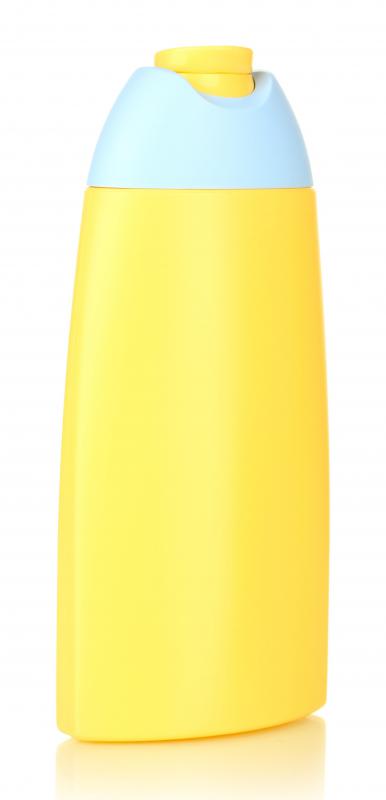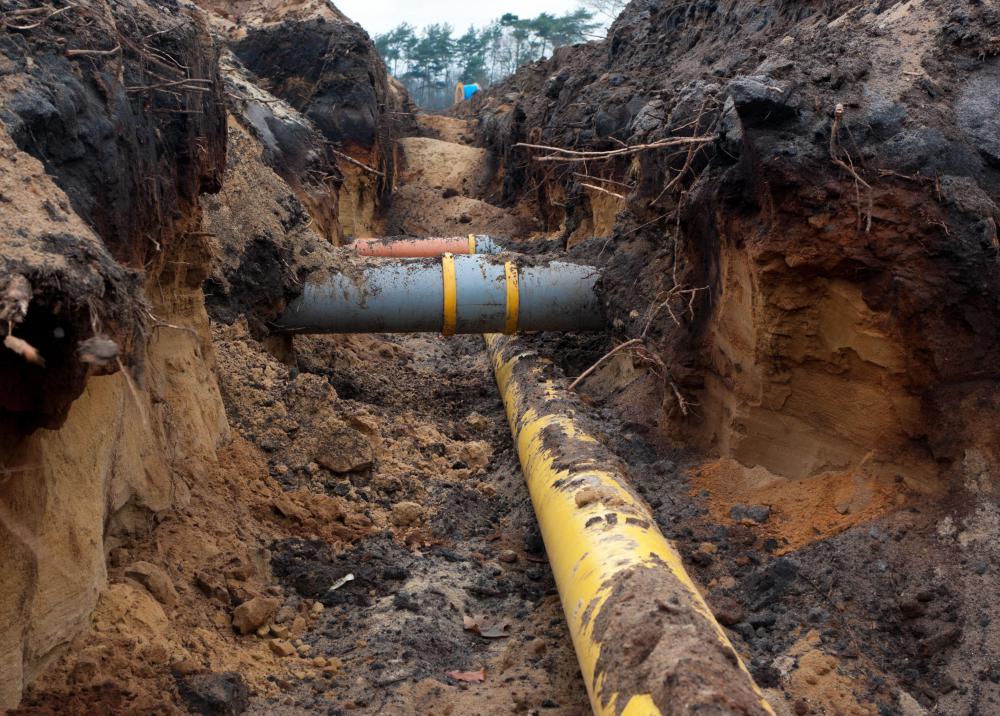At HomeQuestionsAnswered, we're committed to delivering accurate, trustworthy information. Our expert-authored content is rigorously fact-checked and sourced from credible authorities. Discover how we uphold the highest standards in providing you with reliable knowledge.
What is Grey Water?
Grey water is literally the water that comes out in the wash. Not to be confused with black water, which is wastewater that comes from the toilet and garbage disposal, it is the wastewater that comes from the laundry, kitchen, bathroom faucets, baths, and showers. Using recycling and treatment systems for this water is an important component of green building methods and practices. Recycling it has become more attractive to owners of commercial and residential buildings for the savings in energy and potential environmental benefits.
Recycling grey water reduces the demand on sewage treatment plants as well as water treatment plants. An estimated 50 to 80% of all wastewater a residence generates falls in this category, and it can be put to use in irrigation of the landscaping. Grey water is preferred for this type of recycling, as black water requires much more advanced treatment procedures. Ninety percent of nitrogen in wastewater comes from black water, and nitrogen is one of the most difficult pollutants to remove, making it nearly impossible to recycle black water for residential or commercial applications.

There are different methods of treating grey water on the market, and as the technology improves, more become available to the general public. Since this treatment is a specialized process and requires expert installation and maintenance, it is often cost prohibitive for the average homeowner. Among the current methods are reedbed filtering systems, living wall and wetpark systems, and distillation. Benefits of recycling the water include recharging the groundwater, reducing energy usage, and improving the landscape.

Long term studies have not been conducted on the potential environmental impact of using grey water on the topsoil, and city and county officials have not quite kept pace with the developments in technology. As a result, there are few regulations on the books that govern its use. If one decides to install a grey water recycling system, the household should use biodegradable, organic soaps and detergents to minimize the impact on the environment.
AS FEATURED ON:
AS FEATURED ON:














Discussion Comments
Having seen the MSDS's for fragrances in the cosmetics industry, I definitely agree that more research needs to be done before it is used for topsoil.
Grey water irrigation is another technique used to filter grey water and help recharge ground water reservoirs. The process entails using a sand and gravel filter to filter out some of the particulate. After filtration, the water is drained into a pump pit. From the pump pit, the grey water is pumped through an irrigation system for further purification by plant roots. The potassium, nitrogen and phosphorous in the grey water acts a fertilizer, saving the consumer money and preventing the need for petroleum based fertilizers.
@ Anon38380- A living wall is a technique used in grey water filtration. A living wall is essentially a porous wall that is designed in a staggered pattern. The wall is filled with porous materials like gravel, perlite, or vermiculite, and then plants are planted in the walls.
The grey water drains at the top of the wall. Gravity does its work, forcing the grey water over the roots and the wall fill, purifying the grey water in the process. The resulting runoff is free of organic pollutants, and the water is free to enter the water table.
hey wise geek. You guys are really helpful so thanks and by the way, what's a living wall? is it some kind of vine that grows on the wall?
--foxylady1
Post your comments